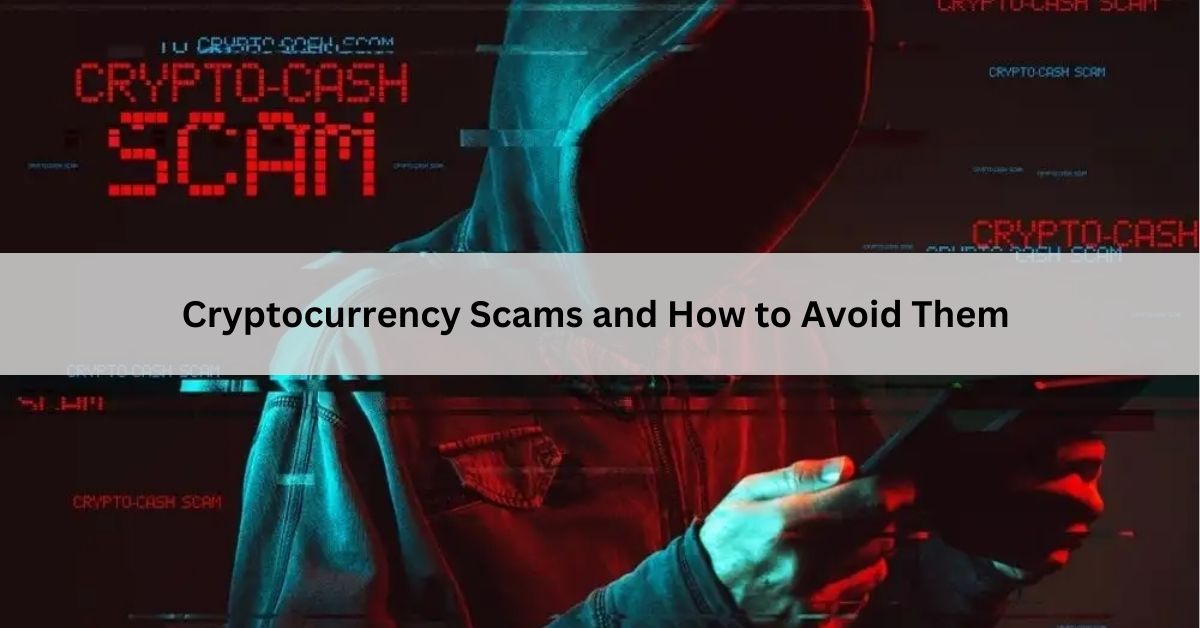Cryptocurrency has gained popularity as a digital asset class, offering opportunities for investment and financial innovation. However, along with its rise, cryptocurrency scams have also proliferated, posing risks to investors’ funds and trust. This article explores common cryptocurrency scams, provides tips on how to avoid them, and emphasizes the importance of vigilance and due diligence in the cryptocurrency market.
Understanding Cryptocurrency Scams
Cryptocurrency scams encompass various fraudulent schemes designed to deceive investors and steal their funds. These scams exploit the decentralized and pseudonymous nature of cryptocurrencies, making it challenging to trace and recover stolen assets. Some common types of cryptocurrency scams include:
Phishing Scams: Fraudsters impersonate legitimate cryptocurrency exchanges or wallets through emails, websites, or social media to steal users’ login credentials or private keys.
Ponzi Schemes: Fraudsters promise high returns on investments by using new investors’ funds to pay returns to earlier investors, creating a false appearance of profitability until the scheme collapses.
Fake ICOs and Token Sales: Scammers create fake initial coin offerings (ICOs) or token sales, enticing investors to purchase non-existent or worthless tokens.
Pyramid Schemes: Similar to Ponzi schemes, pyramid schemes require participants to recruit new investors to earn rewards, unsustainable and illegal in most jurisdictions.
Fake Exchanges and Wallets: Fraudulent platforms mimic legitimate cryptocurrency exchanges or wallets to lure users into depositing funds, which are then stolen.
Malware and Ransomware: Malicious software infects users’ devices to steal private keys or encrypt data, demanding ransom payments in cryptocurrency.
How to Avoid Cryptocurrency Scams
Protecting yourself from cryptocurrency scams requires awareness, caution, and proactive measures. Here are essential tips to help you avoid falling victim to scams:
Research and Due Diligence: Thoroughly research cryptocurrencies, projects, and platforms before investing. Verify the legitimacy of exchanges, wallets, and ICOs by checking reviews, security measures, and community feedback.
Secure Your Assets: Use reputable cryptocurrency wallets that offer robust security features, such as multi-factor authentication (MFA) and hardware wallets. Avoid storing large amounts of cryptocurrency on exchanges.
Beware of Phishing Attempts: Be cautious of unsolicited emails, messages, or advertisements requesting your private keys or login credentials. Always verify the authenticity of communication before clicking on links or providing personal information.
Exercise Caution with ICOs: Evaluate the credibility and transparency of ICOs or token sales. Look for clear project goals, team backgrounds, use cases, and community engagement.
Verify Exchange Authenticity: Ensure that cryptocurrency exchanges are registered and compliant with regulatory requirements. Check for security certifications, user reviews, and withdrawal policies.
Stay Informed: Stay updated on cryptocurrency news, market trends, and regulatory developments. Be wary of unrealistic promises of high returns or guaranteed profits, which often indicate potential scams.
Reporting Suspicious Activity
If you encounter suspicious cryptocurrency activity or believe you have been targeted by a scam:
- Report to Authorities: Contact local law enforcement agencies or financial regulators to report fraudulent activities and seek guidance on recovering stolen funds.
- Use Blockchain Analysis Tools: Utilize blockchain explorers and analysis tools to trace transactions and identify potential scam addresses or patterns.
- Community Awareness: Share your experience with trusted cryptocurrency communities and forums to warn others and prevent further victimization.
Conclusion
As cryptocurrencies continue to evolve and gain mainstream acceptance, the risk of cryptocurrency scams remains a significant concern for investors. By understanding common types of scams, exercising caution, and implementing robust security measures, investors can protect their investments and mitigate the risks associated with fraudulent activities. Education, diligence, and awareness are key to navigating the cryptocurrency market safely and responsibly. Stay informed, stay vigilant, and empower yourself with knowledge to safeguard your financial assets in the digital age.




